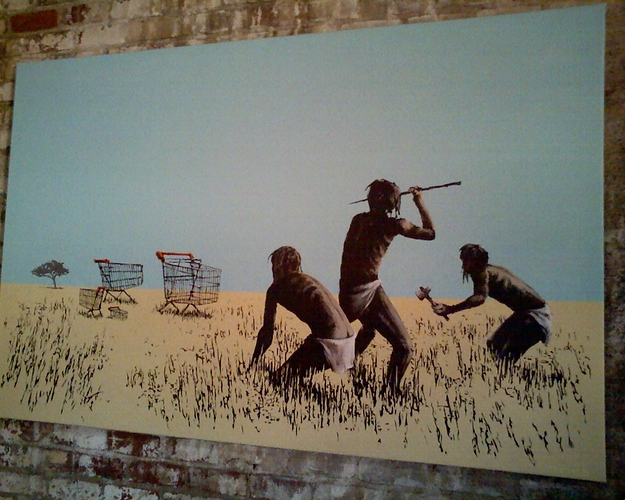As anthropologist David Graeber and archaeologist David Wengrow observe in a fascinating piece for Eurozine, the standard story about the development of human societies is deeply entrenched and largely unquestioned. It suggests that we began as foragers and hunters organized in small, relatively egalitarian bands. But then we developed agriculture, which over time led to the emergence of cities, centralized governments, hierarchy, and inequality, but also writing and science. However, Graeber and Wengrow point out that there has never been solid archaeologist evidence for this story, and recent discoveries paint a far more complex, heterogenous picture of the development of human societies—one suggesting that inequality and domination are not, in fact, inevitable byproducts of “civilization.” Here’s an excerpt from the piece:
Mainstream social science now seems mobilized to reinforce this sense of hopelessness. Almost on a monthly basis we are confronted with publications trying to project the current obsession with property distribution back into the Stone Age, setting us on a false quest for ‘egalitarian societies’ defined in such a way that they could not possibly exist outside some tiny band of foragers (and possibly, not even then). What we’re going to do in this essay, then, is two things. First, we will spend a bit of time picking through what passes for informed opinion on such matters, to reveal how the game is played, how even the most apparently sophisticated contemporary scholars end up reproducing conventional wisdom as it stood in France or Scotland in, say, 1760. Then we will attempt to lay down the initial foundations of an entirely different narrative. This is mostly ground-clearing work. The questions we are dealing with are so enormous, and the issues so important, that it will take years of research and debate to even begin understanding the full implications. But on one thing we insist. Abandoning the story of a fall from primordial innocence does not mean abandoning dreams of human emancipation – that is, of a society where no one can turn their rights in property into a means of enslaving others, and where no one can be told their lives and needs don’t matter. To the contrary. Human history becomes a far more interesting place, containing many more hopeful moments than we’ve been led to imagine, once we learn to throw off our conceptual shackles and perceive what’s really there.
Image: Artwork by Banksy, title unknown. Via Eurozine.
